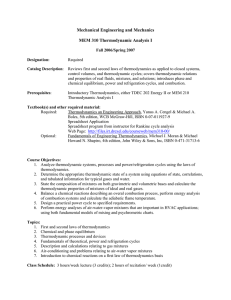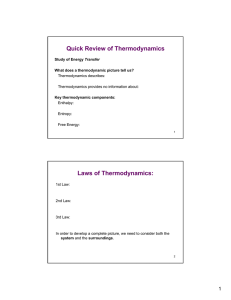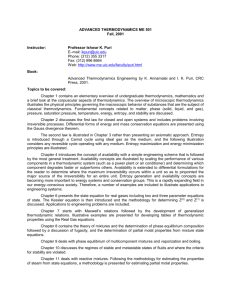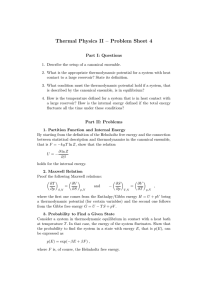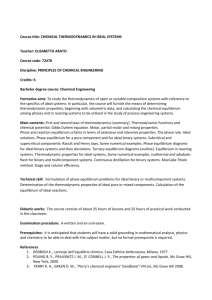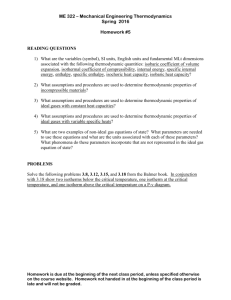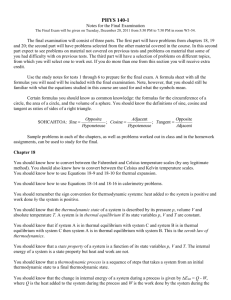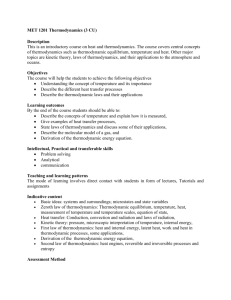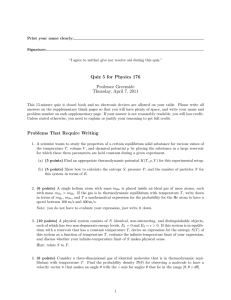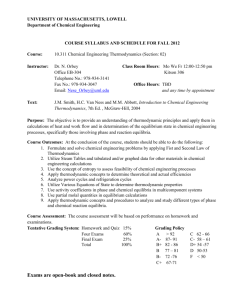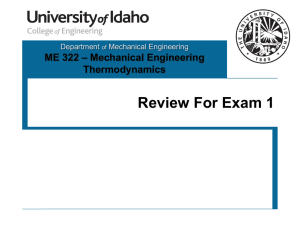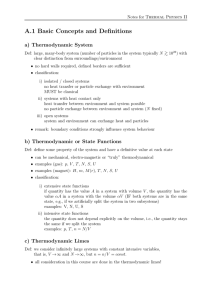Mechanical Engineering and Mechanics MEM 410 Thermodynamic Analysis II Fall 2006/Spring 2007
advertisement
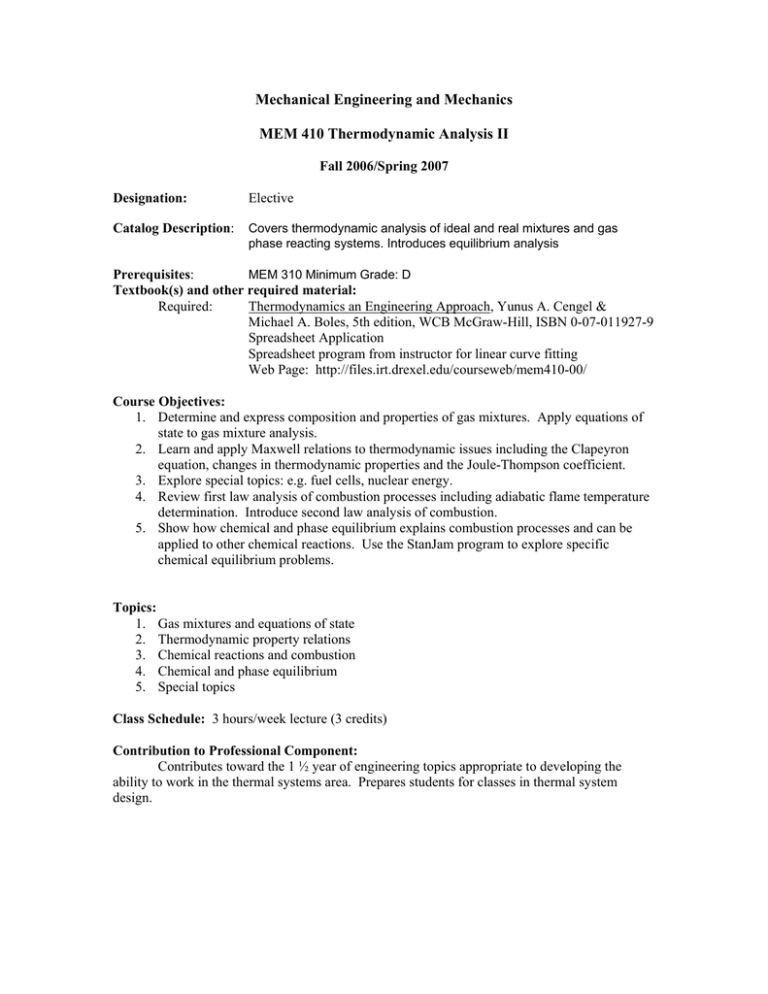
Mechanical Engineering and Mechanics MEM 410 Thermodynamic Analysis II Fall 2006/Spring 2007 Designation: Elective Catalog Description: Covers thermodynamic analysis of ideal and real mixtures and gas phase reacting systems. Introduces equilibrium analysis Prerequisites: MEM 310 Minimum Grade: D Textbook(s) and other required material: Required: Thermodynamics an Engineering Approach, Yunus A. Cengel & Michael A. Boles, 5th edition, WCB McGraw-Hill, ISBN 0-07-011927-9 Spreadsheet Application Spreadsheet program from instructor for linear curve fitting Web Page: http://files.irt.drexel.edu/courseweb/mem410-00/ Course Objectives: 1. Determine and express composition and properties of gas mixtures. Apply equations of state to gas mixture analysis. 2. Learn and apply Maxwell relations to thermodynamic issues including the Clapeyron equation, changes in thermodynamic properties and the Joule-Thompson coefficient. 3. Explore special topics: e.g. fuel cells, nuclear energy. 4. Review first law analysis of combustion processes including adiabatic flame temperature determination. Introduce second law analysis of combustion. 5. Show how chemical and phase equilibrium explains combustion processes and can be applied to other chemical reactions. Use the StanJam program to explore specific chemical equilibrium problems. Topics: 1. Gas mixtures and equations of state 2. Thermodynamic property relations 3. Chemical reactions and combustion 4. Chemical and phase equilibrium 5. Special topics Class Schedule: 3 hours/week lecture (3 credits) Contribution to Professional Component: Contributes toward the 1 ½ year of engineering topics appropriate to developing the ability to work in the thermal systems area. Prepares students for classes in thermal system design. Relationship to Program Outcomes: Outcomes a - k a. An ability to apply knowledge of mathematics, science and engineering b. An ability to design and conduct experiments as well as to analyze and interpret data c. An ability to design a system, component or process to meet desired needs d. An ability to function on multidisciplinary teams e. An ability to identify, formulate and solve engineering problems Content Explanation 2 This course requires the students to develop a general understanding of thermodynamics. The students learn how to apply and synthesize their knowledge of mathematics, science, and engineering. 1 A design problem involving simple optimization requires the students generate data for a system and analyze them to find the optimized solutions. 2 The assigned design problems are always required to meet societal or industrial needs. 0 NA 2 f. An understanding of professional and ethical responsibility 1 g. An ability to communicate effectively h. The broad education necessary to understand the impact of engineering solutions in a global/societal context i. A recognition of the need for and an ability to engage in lifelong learning j. A knowledge of contemporary issues k. An ability to use the techniques, skills and modern engineering tools necessary for engineering practice 2 Prepared by: The problems and project require students to identify, formulate and solve engineering problems. This is emphasized as part of the engineer’s overall responsibility. 0 Written presentation of the final design problem is required. The impact of engineering design on the environment (pollution, greenhouse effect, etc.) and society are covered. NA 0 NA 2 Computer packages are used to explore the solution domain for homework and the design project 1 Dr. William J Danley, November 21, 2006 Evidence Homework, Exams, Project Report Final report for the design project; Classroom example and homework problems on Adiabatic Flame Calculations Final report for the project NA Homework, exams, design project Classroom discussion of environmental issues; Project Report Final report for the project Classroom discussion of environmental issues; Project Report Homework; Final report for the design project
